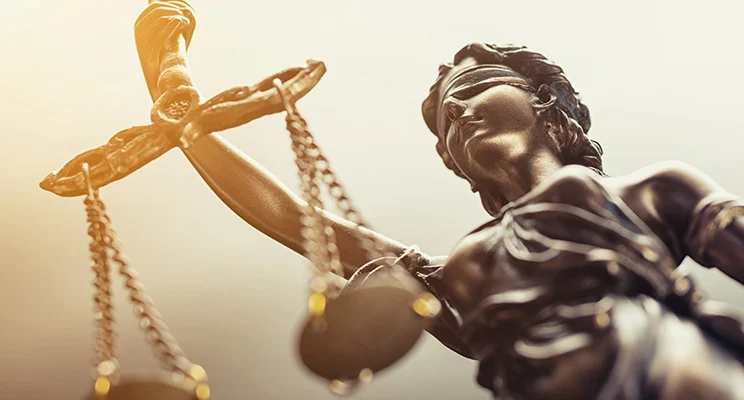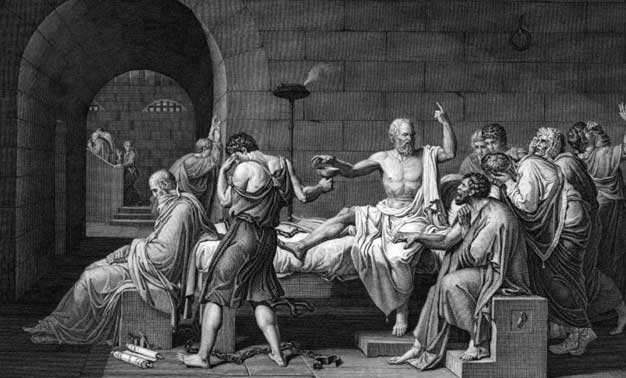Humanity, always and everywhere, has produced criteria of a moral nature, as a kind of mechanism to try to guarantee its permanence and its projection over time. These ethical ideas fulfill a double function, on the one hand, they operate as referents that support social construction and on the other, they act as permanent goals or objectives to be achieved in daily life and in history. These concepts are the product of the philosophical and metaphysical reflection of people who, faced with the unfathomable mystery of existence, propose basic forms of behavior for people in the different scenarios in which they evolve: social or space of relationship with other individuals. , environments in which they are found interdependently with other animal and plant creatures, as well as in the immeasurable cosmic universe and also in the wide space marked by the recurring presence of divinity, either as evidence for some or, as inexorable and enveloping possibility for others.
Originally, each group of individuals raises its own moral concepts, without considering the criteria of others. However, humanity, with the advancement of civilization, through the interrelation of peoples -which responds to the need for connection with one another- gradually integrates the ethical references of each group, finding common places in the different conceptions of what is morally correct. Thus, compendiums of concepts are generated, common to all, that represent humanity and have a perspective of cultural and moral validity for all peoples. They are, in short, a global set of ethical principles or minimums common to all of humanity. Local moral approaches are not without validity, as long as they are not opposed to global ones.
The aforementioned can be exemplified through the figure of the Universal Declaration of Human Rights that is valid worldwide and conditions the principles and values of every culturally specific group, the same ones that are subject to that -Human Rights- supreme ethical creation. of humanity.
Moral reflection contributes, in part, to the historic civilizational design that societies and peoples have built. Not in an absolute way, but rather decisive, by virtue of the equally important contribution to this construct of other elements, different from the ethical ones, such as the knowledge that comes from the objective sciences and their practical or technological applications, as well as the information that It is found in the variegated repository that represents the multifaceted cultural manifestations of the peoples.
In the field of moral reflection, there are large blocks of thought such as the religions of each culture, since there is no people on the planet that has not generated an explanation -related to divinity- of themselves and their role in the universe. . The religious is not the only factor that intervenes in the formation of the moral criterion, there is also the contribution of secular thought that, likewise, seeks the good or duty to be moral to guarantee the sustainability of humanity. These contributions -those coming from ethical reflection- consubstantial to the historical development of peoples, are essential for the generation of other social forms that also seek to ensure coexistence, sustainability and projection, among which the most important and complex is the legal system.

The right, conceptually, is the dogmatic system in which the legal norms that regulate the conduct of people have validity and validity, which allows their compliance to be demanded in a forced and coercive manner. The legality of certain behaviors grants the most important status in the social system of coexistence to the permission, prohibition or requirement that derives randomly from the rule of law, because individuals are obliged to comply with it, because if they do not, we can be sanctioned and forced by the legitimate force of the rule of law, to abide by it. This is a transcendental step in history, since based on religious and philosophical reflection and speculation about good and bad, it is possible to categorize them -those ethical definitions- as legal to protect them, being able to demand their compliance by relying on the use of the coercion exercised by the State.
The legal then manifests itself as the quintessence of moral reflection, because it represents the will of all in democratic systems. The individual, group or cultural criterion is overcome, and one is reached that is collective, because to define a conduct as legal, be it in its permission, prohibition or requirement, the whole society intervenes adopting the criterion that, after the institutional processes , turns out to be the one that represents the collective will.
This perspective, among us, is not always understood, since personal, group or cultural criteria are claimed in everyday life against what is established by law, invalidating the democratic system and prioritizing in practice the point of view of one or the other. with great damage to the legal system of coexistence that stops fulfilling its objective, favoring chaos and its derivations that do not recognize the authority that comes from all, thus benefiting the strongest and leaving the majority of the population defenseless.
From what has been said, respect for the legal system and the law is the ethical principle par excellence, because what is legal is the product of the collective will. Ethical behavior in the face of the legal, aware of this dogmatic truth, seeks to strengthen the system by complying with what the law mandates, prohibits or allows, not only out of fear of sanction, but out of intimate conviction that this contributes to the improvement the living conditions of the people. Due to what has been stated, the respect due to the different legal norms, traffic, tax, civil, labor and all legal norms that by definition are imperative, general, bilateral and coercive.
Universal history collects the example of a character who acted like this, that is, he always respected legal institutions, despite the fact that when he was tried he knew that his moral position would cost him his life. Socrates was apprehended, tried, and sentenced to death on charges that he corrupted the youth. When his followers and friends asked him to flee, after the sentence and before the day of execution of the sentence, he refused. His argument was that, despite everything, he preferred to abide by the laws, because during his life he taught the fundamental and vital value for societies of observance of legal institutions.

Juan Morales Ordonez
